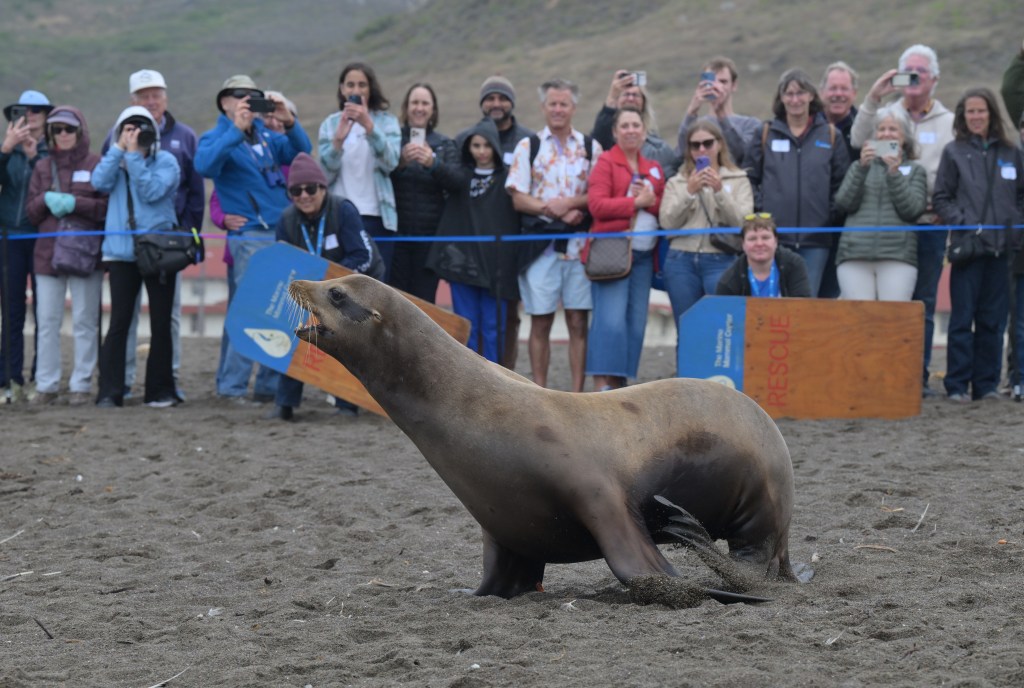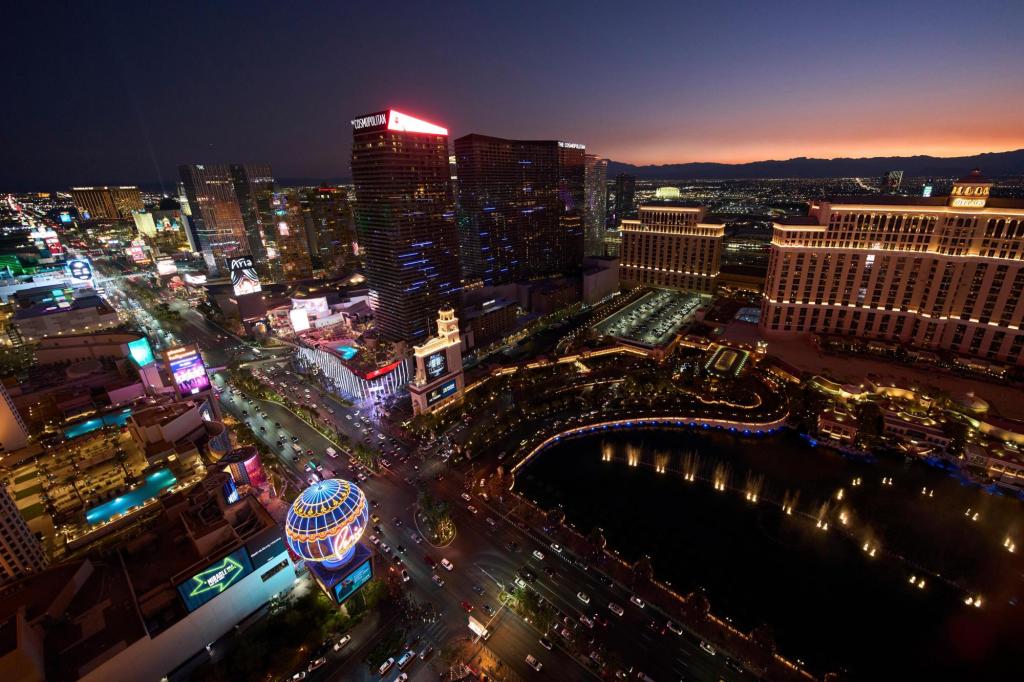Groveacher’s three-week hospital rehab was over.
Eight volunteers wheeled his gray steel cage to Rodeo Beach. As 300 people stood behind two rope lines, 20 more volunteers stood before them gripping protective plywood boards labeled “RESCUE” and sporting the blue Marine Mammal Center logo.
Forty yards of sand lay between Groveacher, a barking, brown, 200-pound adolescent male sea lion, and the ocean.
The gate was raised. The tail came out first. Groveacher quickly spun around. A squirming, bouncing body propelled by flippers twisted its way toward the water. After pausing at its frothy edge, the young male dove into the surf and disappeared. Observers cheered.
“I think that went beautifully,” said Danya Winterman, a center development manager, putting down her plywood shield.
The Marine Mammal Center tucked in the hillside above Rodeo Beach is the world’s largest marine mammal hospital of its kind. It is a trauma and treatment center for beached seals, sea lions and otters along a 600-mile stretch of California coast. Each year, it and two satellite stations on the Central Coast receive thousands of calls from beachcombers reporting beached mammals.
Sometimes the mammals are just resting. Sometimes it is more serious. Either way, aquatic veterinarians say people should stay away and call rescue squads. In some cases, the illness striking the mammals can be fatal to dogs.
Groveacher’s journey began on July 6 with one such call. The animal was found listless on the sand at Oceano Dunes Vehicular Recreation Area south of Pismo Beach. That wasn’t a good sign, said Giancarlo Rulli, a spokesperson for the Marine Mammal Center.
Groveacher was taken by emergency responders to Morro Bay and then Castroville for examination. Blood samples, ultrasound and other diagnoses found leptospirosis, a bacteria that attacks the kidneys and can be fatal. It is hypothesized that warmer waters cause outbreaks.
“Sea lions are incredibly resilient marine mammals,” Rulli said. “So when a sea lion has come ashore sick with leptospirosis, it’s because the disease itself has really taken root in the system of the animal. That animal might have an active organ failure or near it at that point. They’ve basically lost the ability to function as a wild marine mammal.”
Groveacher was transported to the center’s hospital in the Marin Headlands. Initially, he was not placed in its aquatic tanks because he was too weak. He received intravenous fluids, antibiotics and gastro-protectants. He transitioned to the tanks and was fed up to 10 pounds a day of herring. In three weeks, he regained about 20% of his body weight. His energy returned.
“It was a great success as he was here for such a short period of time,” said Stan Jensen, an animal care crew volunteer who has been with the center for 25 years. “That was one of the fastest turnarounds that I can remember.”
The marine hospital currently has 35 other patients. In 2025, there have been 150 cases of leptospirosis. One hundred were in July, including a sea lion found in a neighborhood along North San Pedro Road in San Rafael. That sea lion is still convalescing with no estimated release date, Rulli said.
Groveacher was lucky, Rulli said. “Leptospirosis is such a virulent disease. Only 40% to 50% of the mammals return to the sea.”
Originally Published:
<











